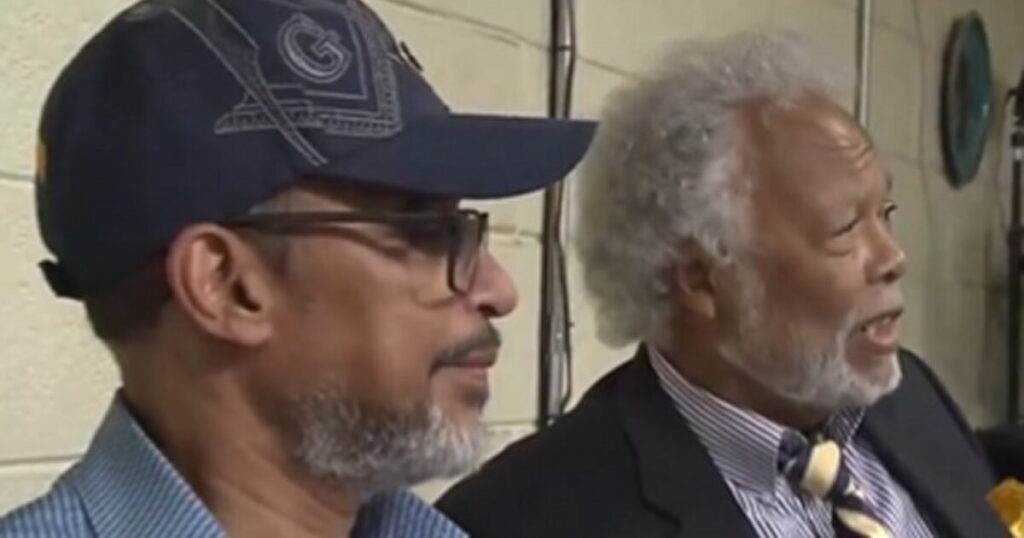In a recent interview, CBS News highlighted a troubling sentiment among Black community leaders in Michigan regarding the upcoming election and the candidacy of Vice President Kamala Harris. Leaders in the black community revealed their frustrations and concerns, signaling a significant disconnect between Harris’s campaign and the needs and opinions of Black voters. Despite the ubiquitous criticism aimed at Donald Trump, these leaders expressed skepticism about Harris’s potential to make a positive impact on their lives, suggesting that her outreach efforts have come too late and lack sincerity. One community leader bluntly remarked that many Black men are simply “not into the Harris campaign,” emphasizing the urgency for the Democratic Party to address these sentiments.
Harris’s attempts to bolster her appeal among Black voters have been met with skepticism, particularly as community leaders referenced the timing of her outreach as politically motivated. During a recent radio interview, Harris attempted to defend her campaign’s engagement with Black communities, but many felt it was insufficient. The sentiments expressed by these leaders echo a broader concern regarding the Democratic Party’s approach to Black voters, which they perceive as marked by a sense of entitlement and disconnection—a situation reminiscent of the Hillary Clinton campaign in 2016. This perspective reveals an urgent warning for Harris: in order to garner the support of Black voters, she and the Democrats must demonstrate a genuine understanding of their needs and concerns.
The criticism directed at the Harris campaign goes beyond mere dissatisfaction; it points to a broader trend of disenchantment among Black voters in Michigan. The unease expressed by community leaders has resonated across various media outlets, where similar concerns have been voiced. Multiple platforms, including MSNBC, have highlighted a discontent among Black voters who feel neglected by the Democratic Party. Such claims indicate a potentially detrimental effect on voter turnout if the party fails to rectify its relationship with this crucial demographic. The growing sentiment that the Democratic Party has left Black voters “in the dust” raises questions about the party’s electoral strategy and its long-term viability among these crucial constituents.
Furthermore, the perception of Harris as a candidate mirrors larger trends of disillusionment experienced during previous campaigns, particularly among Black men. Harris’s perceived disconnect from their experiences and struggles may hinder her ability to rally support, as community leaders emphasize the need for authenticity and engagement. A notable leader described the situation as “touch and go” and remarked on the arrogance of the Democratic Party, suggesting that they may not fully grasp or respect the perspectives of their electorate. Such sentiments could mirror the pitfalls seen in past elections, where a failure to connect meaningfully with Black voters led to a lack of support.
The implications of these dynamics are critical as the election approaches. While a group of leaders might not be representative of the entire voting population, their assertions highlight urgent issues that require attention from the Harris campaign and the Democratic leadership at large. The chorus of discontent serves as a clear indication that without substantial efforts to engage, listen, and respond to the needs of Black voters, the party risks alienating a critical voting bloc. Harris’s campaign must evolve from its current trajectory in order to rebuild trust and support among Black communities, particularly in swing states like Michigan.
As the 2024 election draws near, the challenges faced by Harris in Michigan exemplify broader issues within the Democratic Party’s relationship with Black voters. If the party hopes to mobilize support effectively, it must avoid the mistakes of previous elections and prioritize a strategy that is rooted in genuine outreach and partnership with Black communities. The potential consequences of failing to address these issues are significant, as demonstrated by the concerns raised by community leaders. Harris and the Democratic Party face an uphill battle; they need to listen, learn, and adapt if they intend to secure the support necessary for a successful election outcome.

